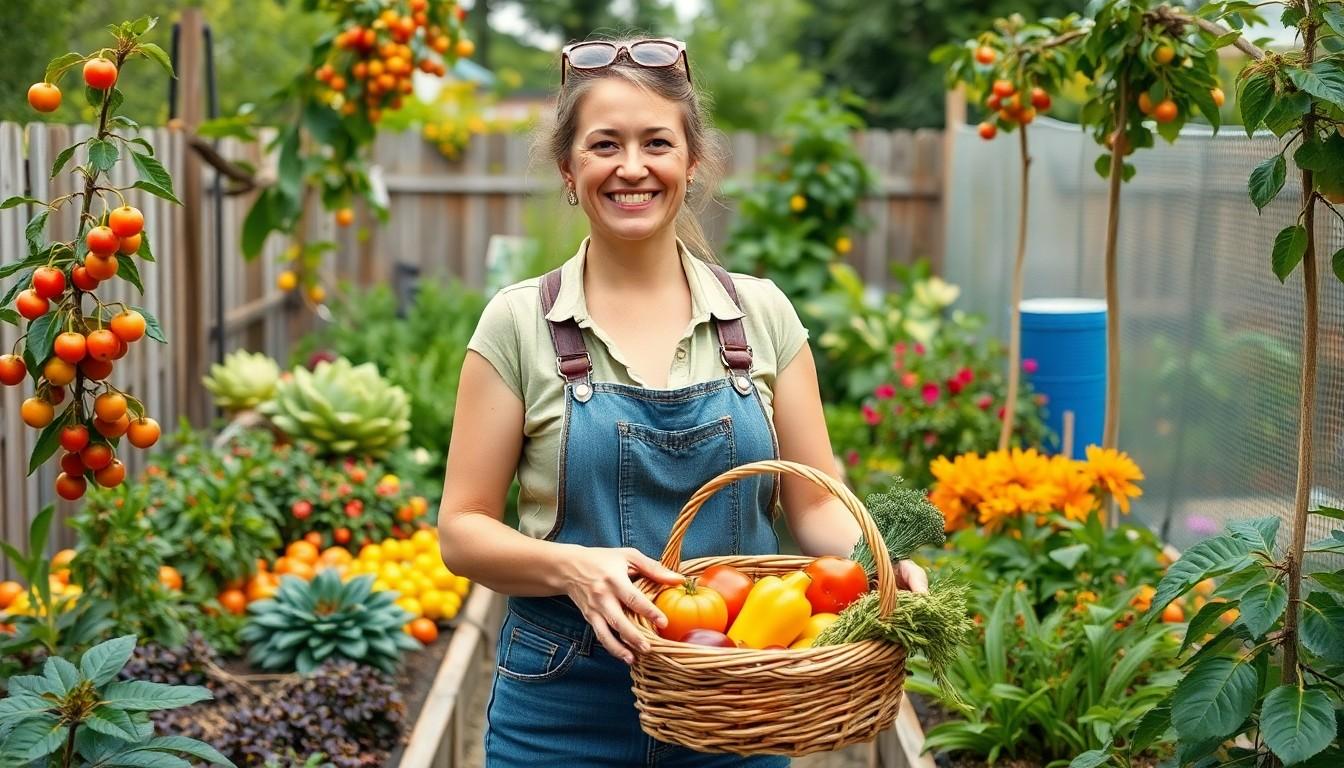In a world where delivery apps reign supreme and grocery stores are just a click away, the idea of self-sufficiency might seem as outdated as dial-up internet. But let’s face it: relying on others for everything can feel a bit like trusting a cat to guard your sandwich. Self-sufficiency skills are not just practical; they’re empowering. Imagine whipping up a gourmet meal from your backyard garden or fixing a leaky faucet without calling your neighbor.
Mastering these skills can transform anyone into a modern-day MacGyver, ready to tackle life’s little challenges with confidence and a dash of creativity. Plus, who wouldn’t want to impress friends with tales of foraging for wild herbs or brewing their own kombucha? Dive into the world of self-sufficiency and discover how these skills can make life not only easier but also a lot more fun.
Self Sufficiency Skills
Self-sufficiency skills encompass a range of abilities that enable individuals to meet their own needs without external assistance. These skills include food production, home maintenance, and basic healthcare knowledge. Gardening serves as one of the primary facets of self-sufficiency. Growing vegetables, fruits, and herbs offers not only fresh produce but also a sense of achievement.
Food preservation techniques like canning and fermenting are equally important. These methods extend the shelf life of seasonal harvests, ensuring nutritious options throughout the year. Crafting and repairing household items further enhance self-sufficiency. Knowing how to manage simple repairs or upcycle furniture elevates resourcefulness and reduces dependency on outside services.
Foraging offers another exciting avenue for self-sufficiency. Identifying wild edibles and medicinal plants fosters a deeper connection with nature while expanding dietary choices. Skills related to animal care, such as raising chickens for eggs or keeping bees, also contribute significantly. These skills not only provide food sources but also cultivate responsibility and sustainability.
Basic cooking skills are fundamental for maintaining a self-sufficient lifestyle. Mastering diverse recipes enhances culinary creativity and improves nutrition. Moreover, financial literacy plays a crucial role. Understanding budgeting, investing, and saving helps individuals make informed decisions regarding their resources.
Emergency preparedness rounds out the suite of self-sufficiency skills. Planning for potential crises, stocking essential supplies, and learning first-aid techniques bolster confidence and security. Each skill reinforces others, creating a comprehensive approach to living independently. Those who invest time in honing self-sufficiency skills often discover not only practicality but joy in the journey toward independence.
Importance Of Self Sufficiency Skills

Developing self-sufficiency skills leads to increased independence and confidence. Mastering these abilities not only empowers individuals but also offers practical benefits in everyday life.
Financial Independence
Self-sufficiency directly influences financial independence. Growing food provides major savings on grocery bills while ensuring fresh, organic produce. Individuals can cut costs by learning to craft homemade products instead of purchasing them. Basic financial literacy enables better money management through budgeting and investment knowledge. These skills contribute to long-term stability, allowing individuals to adapt to economic fluctuations. Living within one’s means fosters a sustainable lifestyle, reducing reliance on loans or credit. With different revenue sources, like selling excess produce or handmade items, individuals enhance financial security while pursuing passions.
Emergency Preparedness
Emergency preparedness becomes vital in a self-sufficient lifestyle. Knowledge of basic first-aid techniques equips individuals to respond effectively in crises. Preparing a well-stocked emergency kit ensures readiness for natural disasters. Developing a plan detailing evacuation routes and communication strategies fosters calm during stressful situations. Skills such as home repairs and food preservation prepare individuals for unexpected events. Learning to assess risks associated with emergencies empowers families to stay safe and secure. Confidence in these abilities leads to a proactive approach, ensuring individuals can tackle any challenge that arises.
Essential Self Sufficiency Skills
Self-sufficiency skills empower individuals to thrive independently. Mastering these skills leads to resourcefulness and confidence in daily life.
Gardening And Food Production
Gardening serves as a foundation for food production. It enables individuals to grow fresh vegetables and fruits, reducing reliance on grocery stores. Techniques like crop rotation and companion planting maximize yield and health. Raised beds and container gardening options cater to various living spaces. Individuals cultivating herbs aids in flavoring dishes while boosting health benefits. Committing to regular maintenance improves overall success. Weekend projects can enhance skills and provide bountiful harvests.
Cooking And Preserving Food
Basic cooking skills transform raw ingredients into healthy meals. Utilizing seasonal produce fosters creativity while minimizing costs. Preserving food through methods like canning and fermenting ensures availability year-round. Families often enjoy the fruit of their labor during winter months. Meal prepping techniques save time and reduce waste. Knowing how to prepare simple dishes enhances versatility and enjoyment in cooking. Individuals experimenting with flavors can develop unique recipes.
Basic Home Repairs
Basic home repairs enhance self-sufficiency. Knowledge of plumbing and electrical systems aids in troubleshooting common issues. Individuals learning to patch drywall or paint walls can significantly reduce repair costs. Safety awareness in DIY projects remains crucial for success. Familiarity with tools such as hammers, screwdrivers, and drills fosters confidence. Regular home maintenance prevents larger, more expensive problems down the line. Engaging in repairs fosters a sense of accomplishment and ownership.
Sustainable Living Practices
Sustainable living practices contribute to an eco-friendly lifestyle. Techniques like composting reduce waste while enriching garden soil. Individuals adopting a minimalist approach avoid clutter and prioritize essential items. Using reusable products lowers environmental impact and promotes financial savings. Energy conservation methods, such as switching to LED bulbs, lower utility bills. Researching local resources helps individuals find sustainable options available in their communities. Commitment to sustainability cultivates a deep connection with the environment.
Developing Self Sufficiency Skills
Self-sufficiency skills provide significant advantages in today’s fast-paced world. Learning these skills enables individuals to enhance their independence and resourcefulness.
Learning Through Online Resources
Online resources offer numerous options for mastering self-sufficiency skills. Websites, blogs, and video tutorials cover various topics such as gardening, cooking, and DIY repairs. People can easily find step-by-step guides for gardening techniques like raised beds or crop rotation. Many platforms provide forums for discussion, allowing individuals to share experiences and ask questions. Free courses and webinars expand knowledge on topics like food preservation and emergency preparedness. Individuals can explore app-based tools that assist in tracking home maintenance or plant growth. Online resources create an accessible way to gain practical skills and confidence.
Community Workshops And Classes
Attending community workshops and classes fosters hands-on learning for self-sufficiency skills. Local organizations often host events that cover skills such as canning, woodworking, and herbal medicine. Participants can engage directly with instructors, gaining valuable insights and techniques. Workshops often encourage networking with like-minded individuals, creating a supportive community atmosphere. Classes also emphasize practical applications, enhancing retention of learned skills. Local libraries and community centers frequently offer free or low-cost options. These opportunities deepen understanding and provide real-life experiences that boost confidence in self-sufficiency practices.
Accomplishment and Confidence
Embracing self-sufficiency skills enriches lives in numerous ways. It fosters independence and empowers individuals to take control of their daily needs. By cultivating skills like gardening cooking and basic repairs, people not only save money but also gain a sense of accomplishment and confidence.
The joy of creating something from scratch whether it’s a meal or a repaired item can’t be overstated. As individuals engage with these practices they connect more deeply with their environment and communities.
Ultimately self-sufficiency isn’t just about survival; it’s about thriving in a world where reliance on convenience can overshadow personal capabilities. By investing in these skills individuals prepare themselves for both everyday tasks and unexpected challenges ahead.

